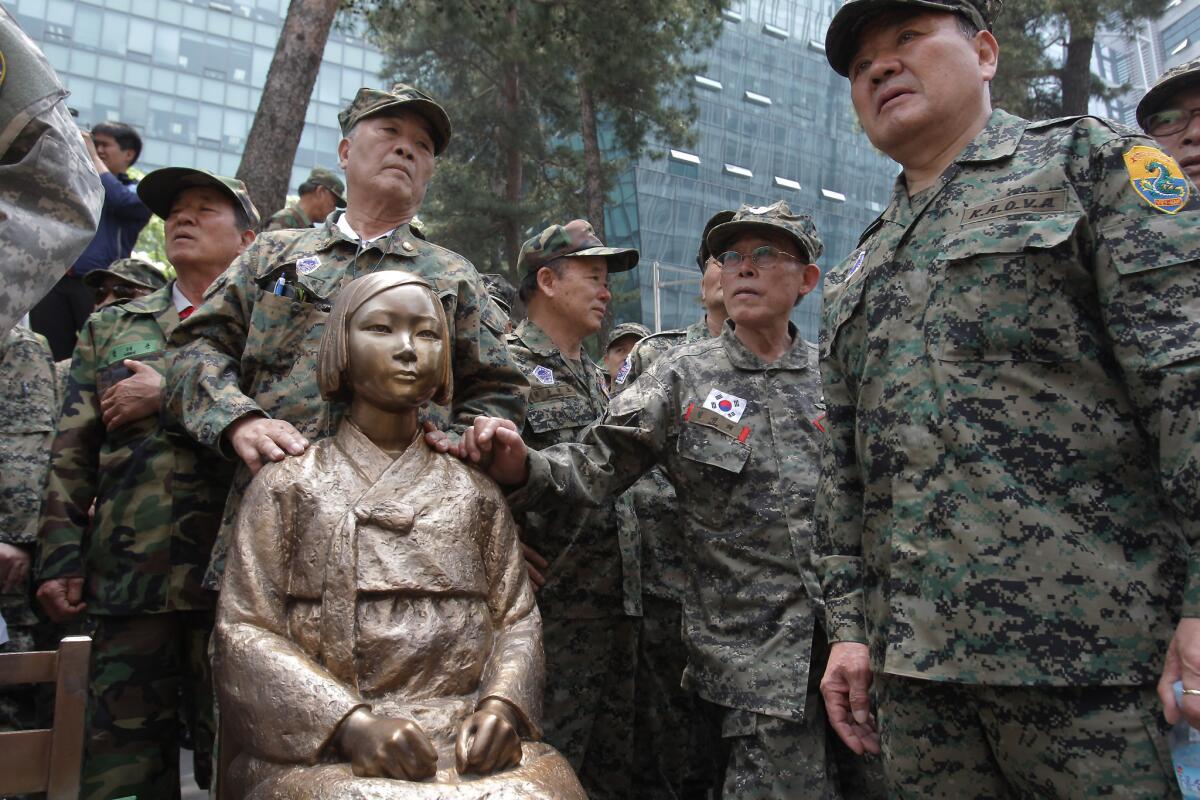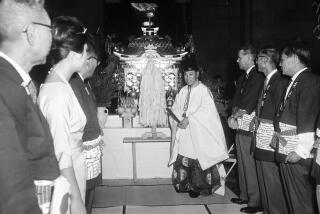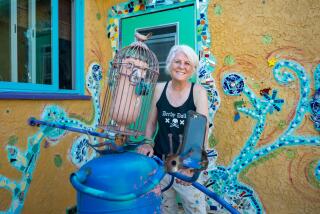Japanese nationalist protest of âcomfort womenâ sculpture fails

A metal sculpture commemorating the âcomfort womenâ used as sex slaves by Japanese troops during World War II stirred a transoceanic uproar among Japanese nationalists but the protest failed to block the project.
City officials in Glendale, north of Los Angeles, on Tuesday voted in favor of allowing the sculptureâs installation at the South Korean section of a Sister Cities display at Glendaleâs Central Park.
The mayor and City Council had been bombarded in recent weeks with form-letter emails protesting the monument as a divisive reminder of a bitter chapter in Korean-Japanese relations.
But supporters of the project defended the monument as an important symbol to help the two communities reach a common understanding of the comfort womenâs wartime suffering.
Estimates of the number of Korean and other Asian women and girls forced to serve as sex slaves for the Japanese Imperial Army generally range between 100,000 and 200,000 by respected international historical and research sources. Some conservative Japanese academics and politicians, though, contend the numbers never exceeded 20,000, and they insist that the vast majority of the women volunteered for the wartime sex trade.
Many of the emailed protests of the Glendale monument linked to a website compiling video, academic reports and paid advertisements arguing the Japanese nationalist position that the nature and scope of the comfort womenâs work has been distorted to rekindle mistrust between Koreans and Japanese.
âWe Japanese are strongly against the comfort women memorials,â Hashi Koichiro of Chiba, Japan, wrote to Glendale officials, referring to similar comfort women monuments in New York, New Jersey and Illinois. âWe hope that you will make a truthful, fair and objective judgment in regards to this issue.â
Other letters sent by the hundreds to Glendale officials and California media, like one from Keiko Obara of nearby Arcadia, denounced the accepted comfort women statistics as âphony propagandaâ and the park commemorations as defamatory of the Japanese.
A reporterâs message on Twitter seeking a spokesperson for the Internet protest campaign elicited organizer Yumiko Yamamoto, who said she was reluctant to discuss it other than by email.
âThe reason we started this is that we wanted to help Japanese speak out. Japanese are usually very quiet and peacefulâ and uncomfortable arguing divisive issues, wrote Yamamoto.
She described herself as âa normal Japanese woman,â not a nationalist or right-winger bent on rewriting history. She declined to provide contact information for herself or her organizationâs website for fear of getting spammed by angry Koreans.
Glendale public information officer Tom Lorenz said city officials had spoken with Japanese diplomats and community leaders who expressed no concern about the monument.
Joachim Youn, president of the Korean American Forum of California that raised funds for the monument, disputed the protestersâ claims that it was intended to provoke controversy between Japanese and Koreans.
âThe majority of Japanese intellectuals agree with our position. Full recognition of history and evidence involved will lead to mutual understanding and lessening of hostility,â Youn said. âOur activities are not intended to strain the relationship between Koreans and Japanese, but rather to improve it by getting ourselves on the same page in terms of our perception of history and moral standards.â
The monument is to be installed July 30, proclaimed by Glendale Mayor Frank Quintero as Korean Comfort Women Day.
ALSO:
Israel launches pilot for ID with biometric database
Egyptâs Muslim Brotherhood rejects timetable for elections
Leaked Pakistan report faults government for failing to find Bin Laden
More to Read
Sign up for Essential California
The most important California stories and recommendations in your inbox every morning.
You may occasionally receive promotional content from the Los Angeles Times.











